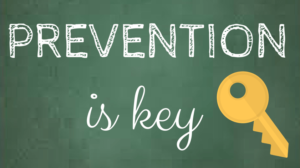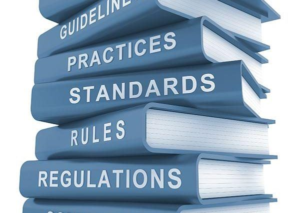
During the current COVID-19 pandemic, every day brings new information, concerns, and challenges regarding the spread of the virus, its economic and social impacts, and government directives. Leap Solutions remains dedicated to keeping you informed and empowered by delivering relevant, up-to-the-minute information and resources.
Our organizational development specialists are here to help support you with your online strategic planning, team development, executive coaching, training, program evaluation, and community engagement. Essentially, we can convert anything that you need in support of your business to a virtual experience. You still want to accomplish your plans, goals, and outcomes. We are here—virtually to help you achieve them.

The coming of a new year means the coming of new California employment and labor laws. As always, Leap Solutions is here to help you face them proactively and confidently. Our HR professionals have the knowledge, expertise, and resources to inform and guide you through ever-changing legislation and empower your company to thrive in 2021 and beyond.
Our Newsletter will cover:
- Families First Coronavirus Response Act (FFCRA)
- AB 685 Workplace Safety (Effective January 01, 2021)
- Written COVID-19 Prevention Program (November 20, 2020)
- SB 1383 Expands California Family Rights Act (CFRA) (Effective January 01, 2021)
- Mandatory Sexual Harassment Training (Effective January 01, 2021)
- Minimum Wage and Salary Requirements for Exempt Employees (Effective January 01, 2021)
- Paid Family Leave (Effective January 01, 2021)
- Agriculture under Wage Order 14 (Effective January 01, 2021)
- Additional Handbook Policies to Review
Families First Coronavirus Response Act (FFCRA)
The Families First Coronavirus Response Act (“FFCRA”) expired December 31, 2020. The FFCRA applied to employers with 500 or fewer employees and provided workers emergency paid sick leave because of the COVID-19 pandemic. The Department of Labor recently confirmed that employers are not required to provide employees with FFCRA leave after December 31, 2020, but may voluntarily decide to provide employees such leave. Congress also extended employer tax credits for paid sick leave and the expanded family and medical leave for voluntary use through March 31, 2021. It is important that employers have a way to document the sick and leave under FFCRA to receive the payroll credits.

AB 685 Workplace Safety
(Effective January 01, 2021)
AB 685 expands employee COVID-19 protections by requiring employers to provide notice of a “potential exposure” to COVID-19 within one business day. The notice should go to all employees and employers of subcontracted employees (and employee-representatives) who were at a worksite within the infectious period who may have been exposed to the virus. The notice must be written in a manner typically used to communicate to all employees, employers of subcontracted employees, and employee representatives (e.g., unions), in the form of a letter, email, or text message, but only if employees anticipate receiving communication from the employer in this manner. The notification must be in writing and a phone call will not satisfy this requirement. Also, written communication should be in English and the language understood by the majority of the employees.
The notice must contain:
- Information regarding COVID-19 related benefits that employees may receive, including paid sick leave, workers’ compensation, and anti-retaliation protections
- Company’s disinfection protocols and safety plan to eliminate any further exposures
Companies are also required to notify California’s Department of Public Health if there are sufficient COVID-19 positive cases that meet the definition of a COVID-19 outbreak.

Written COVID-19 Prevention Program
(November 20, 2020)
SB 1383 Expands California Family Rights Act (CFRA)
(Effective January 1, 2021)

Mandatory Sexual Harassment Training
(Effective January 1, 2021)
Minimum Wage and Salary Requirements for Exempt Employees
(Effective January 1, 2021)
The minimum monthly salary requirement for exempt executive, administrative, and professional employees is no less than two times the state minimum wage for full-time employment. It is based on the current state minimum wage, not any applicable local minimum wage. Accordingly, January 1, 2021 minimum salary threshold for these exemptions is as follows:
- For employers with 25 or fewer employees, the state minimum is $13 per hour. Accordingly, the minimum monthly salary test for these exemptions is $4,506.67 per month ($54,080 per year).
- For employers with 26 or more employees, the state minimum wage is $14 per hour. Accordingly, the minimum monthly salary test for these exemptions is $4,853.33 per month ($58,240 per year).

Paid Family Leave
(Effective January 1, 2021)
California’s Paid Family Leave (PFL) offers employees wage replacement through EDD program is expanded to include payments for time off for “qualifying exigencies” related to a family member’s military service. Benefits will be available if employees take time off for activities related to the covered active-duty status of their spouse, registered domestic partner, child, or parent who is a member of the U.S. Armed Forces. Called “qualifying exigencies,” these activities might include such things as official military ceremonies; briefings; changes to child care or financial or legal arrangements as a result of military service; counseling; or spending time with the covered servicemember during rest and recuperation leave.
Beginning July 1, 2020, PFL benefits were extended to a maximum of eight weeks in a 12-month period.

Agriculture under Wage Order 14
(Effective January 1, 2021)
Agricultural employers under Wage Order 14 with 26 or more employees are subject to a series of phased-in overtime changes. Agricultural employers with 25 or fewer employees remain covered by the old rules but will begin phased-in overtime changes in 2022. Agricultural employers with 26 or more employees will now pay time and one-half for hours worked more than 8.5 per day or 45 per week. On the seventh consecutive day of work in a workweek, agricultural employees are entitled to time and a half for the first eight hours and double-time after eight hours. It is important employers designate their workweek. If a workweek is not designated, the law presumes a workweek of 12:01 a.m. Sunday to midnight Saturday. In addition, the day of rest requirement does not apply when hours worked do not exceed 30 in any workweek or six in any workday. The exception for employees working shifts of six hours or less only applies to those who never exceed six hours of work on any day of the workweek.

Additional Handbook Policies to Review
Due to the coronavirus pandemic, many employer practices may have changed, which might warrant employee handbook updates. Ensure your written documents match your practices.
Victims of Crime or Abuse
- Expands the prohibition on discrimination and retaliation against employees who are victims of crime or abuse when they take time off for judicial proceedings or to seek medical attention or related relief for domestic violence, sexual assault, stalking or other crime that causes physical or mental injury.
Paid Leave
- Review how paid leave policies may have changed due to COVID-19.
- Review time-off request procedures to indicate when time off can be required by the employer should sick employees need to be sent home (paid or unpaid).
- Review Kin Care to clarify that employees have the right to designate sick leave as kin care or not.
Attendance/Scheduling
- Update to reflect relaxed attendance policies to encourage sick employees to stay home.
- Update attendance or scheduling policies to be more flexible for parents with child care challenges, or employees with other caregiver issues related to COVID-19.
Safety
- Physical distancing practices detailed to support a safe workplace.
- Employee health screening policies including temperature taking and the confidential handling processes of resulting records.
- Added policy and procedures for employees to report and how the employer will handle a positive COVID-19 case at the worksite.
- Procedures implemented for employee quarantine requirements due to symptoms or positive test results, including return-to-work procedures (two negative tests, 10 days after symptoms are gone, doctor’s note, etc.).
- Contact tracing practices implemented to help contain the spread of infection.
- Visitor policies updated with health screening practices.
Travel
- Travel policies updated to reflect essential versus nonessential travel and the impact of domestic or global travel restrictions.
- Quarantine policies added to address both business and personal travel, including pay arrangements when telecommuting is not possible.
Telecommuting
- Telecommuting policies updated to reflect the type of work or specific positions that are able to be done remotely and the procedures for requesting telework.
- Added or updated policies on which telecommuting-related costs the employer will or will not cover.
Technology
- Information technology policies revised to reflect remote work hardware, software, and support.

***
Leap Solutions is a diverse group of highly skilled management, organizational development, and human resources, and executive search and recruitment professionals who have spent decades doing what we feel passionate about helping you feel passionate about what you do. Our HR specialists can help you get a handle on the ever-changing COVID-19 guidelines, programs, and legislation that may impact you and your employees. We are available to work with you to develop practical solutions and smart planning decisions for your organization’s immediate, near, and long-term needs.
To print this article, click here

![]()